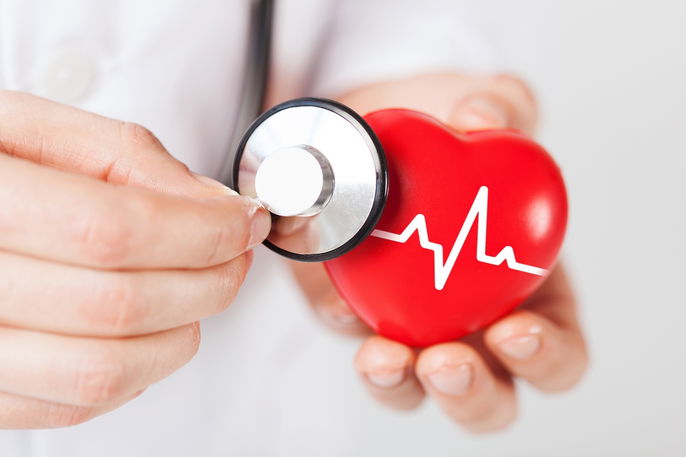Technically, anyone can have a heart attack, regardless of age or gender, but it happens more frequently in people who are over the age of 45, in smokers, in those that are overweight, and in those that have previous medical conditions like high blood pressure, diabetes, or high cholesterol.

The main symptoms of a heart attack include:
- Pain on the left side of the chest, which feels like a tightening, stabbing, or heaviness that can radiate to the neck, armpit, back, left arm, or even right arm;
- Numbness or tingling in the left arm;
- Stomach pain, not related to food;
- Back pain;
- Malaise;
- Nausea and dizziness;
- Paleness and cold sweats;
- Difficulty breathing or shallow breathing;
- Dry cough;
- Difficulty sleeping.
These symptoms usually happen or intensify with physical exercise, stress, or following a meal, as these types of situations put more strain on the heart and generally affect circulation.
Although these are the most common symptoms of a heart attack, heart attacks can present very differently in different groups of people.
1. Heart attacks in women
Women may present with symptoms that can vary in comparison to men. The chest discomfort, malaise, irregular heartbeat or arm heaviness experienced can feel milder, for example. Many symptoms felt by women are typically non-specific and they may be confused with other situations like indigestion or sickness, which may delay diagnosis.
Women have a lower risk of heart attack than men, but overall risk increases after menopause due to decreased levels of estrogen. Estrogen can play a role in heart function - it is a hormone that can affect vessel dilation and blood flow. It's important to seek medical attention if you have any persistent symptoms or if they get worse following physical activity, stress, or eating.
2. Heart attacks in young people
The above-mentioned symptoms (chest pain or tightness, arm tingling, nausea, etc.) are often not caught in younger patients, as heart attacks usually culminate in very sudden cardiac arrest. It can happen so unexpectedly that death can occur before the person even has a chance to seek medical attention. Elderly people usually have decreased heart function over time, which allows for the development of collateral circulation (growth of new vessels that help to support weakened vessels). Collateral circulation is not typically present in younger people.
Heart attacks usually occur in men over 40 and women over 50 due to damage to blood vessels that occurs silently over time. This damage can occur from conditions like high cholesterol, obesity, high blood pressure, and diabetes.
Heart attacks that occur to people under 40 are usually caused by genetic influences, resulting in changes in metabolism and circulation. This risk becomes greater, however, if the young person is obese or partakes in an unhealthy lifestyle (e.g. smoking, excessive alcohol intake, decreased physical activity, etc.)
3. Heart attacks in older adults
Elderly people have a higher risk of suffering from a silent heart attack. As mentioned, damaged vessels can be supported through the development of collateral circulation, which can help maintain blood flow to the heart. For this reasons, heart attack symptoms may start off as mild and persist for many days. The most commonly-seen symptoms in older adults are sweats, breathlessness, paleness, changes in heart rate, and chest discomfort.
Every case is different, however, and symptoms in older adults can vary. Chest pain can range from mild to intense, or the crushing sensation may be light or heavy. Pain may occur in the upper abdomen, which may be confused with gastritis or heartburn.
Older adults have a greater risk of developing heart disease overtime due to changes in circulation, changes in the natural pacemaker, or due to changes in the heart's overall functioning. The risk for heart disease can, however, decrease with a healthy lifestyle that includes physical activity and a diet rich in vegetables and low in carbohydrates and fat,
When to go to the doctor
Any pain that appears between the mouth and the belly button that lasts for more than 20 minutes, especially if coupled with other symptoms mentioned above, is a warning sign. You should call 911 or proceed immediately to the hospital, particularly if you also have a history of diabetes, high blood pressure, obesity, or high cholesterol.
To help alleviate chest pain and improve circulation while waiting for an ambulance, people who never had a heart attack can take 2 Aspirin pills.
If you are with someone who has had a heart attack and has proceeded to lose consciousness, perform CPR while you wait for an ambulance, as this increases the person's chances of survival.






























